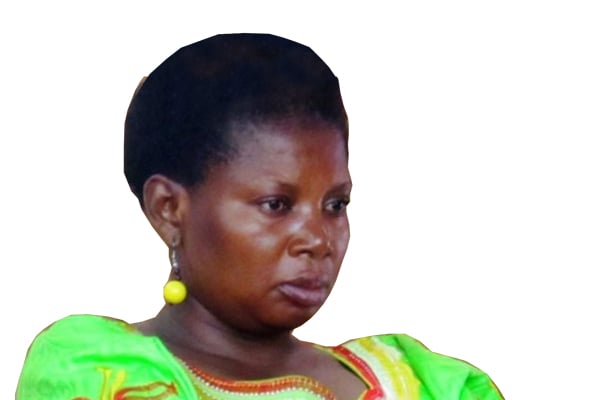Prime
Abandoned HIV positive mother seeks assistance

Needy. Ms Hajira Mukyala crawls out of her rented house at Nawampiti Trading Centre in Luuka District. PHOTO BY PHILIP WAFULA
What you need to know:
- Worrying. Mukyala says she last got medication two years ago.
- “I believe some assistance may make her life much better. She was doing just fine with her hairdressing business but cannot fend for herself anymore,” Awali Nsaja, Nawampiti Sub-county chairperson.
Luuka. With deformed lower limbs, as she crawls outside her rented house in Nawampiti Trading Centre in Luuka District, Hajira Mukyala prompts passersby and neighbours to occasionally give her food rations or money.
The 40-year-old mother, who is HIV positive, was abandoned by her husband 10 years ago.
Her survival is dependent on hand-outs from well-wishers as she cannot fend for herself.
Mukyala discloses that two years ago when she fell very sick, she sought medical attention at Jinja Regional Referral Hospital.
“That was when I found out that I was HIV positive. Since then, life has never been the same especially after being started on anti-retroviral treatment,” she recollects.
Documents in her possession indicate that she is attached to The AIDS Support Organisation (TASO), Jinja branch.
Unfortunately, she has taken long without returning to the centre to get Antiretrovirals (ARVs) as mandated to prolong her life.
She adds that almost all her savings were used when she was in a frail condition and yet at the time, her husband was nowhere to be seen to assist her in footing the medical bills.
“The last time I heard about my husband, then a worker at Kakira Sugar Works in Jinja, was in 2007. This was after I went back to visit him at his residence but his colleagues told me that he had been sacked,” she bitterly recalls.
Mukyale pays Sh40, 000 per month as rent but currently the landlord demands arrears of six months. “I don’t have money at all and cannot travel to Jinja for my medication. For the last nine months, I have gone without ARVs,” she laments.
Appeal
Prof Eugene Kinyanda of Medical Research Council observes that there is an urgent need for Mukyala to be put on antiretroviral therapy once again.
“Long ago, we would wait until somebody’s CD4 count is down to say 250, that is when we could start putting them on ARVs and it would take some people about 10 to 15 years for their CD4 count to fall,” Prof Kinyanda says.
“However, we have now changed the policy and that as long as you are diagnosed to be HIV positive, regardless of what your CD4 count is - we straight away start you on treatment,” he adds.
“The course of the virus in individuals is different. Since this woman fell very sick and probably nearly died means the disease has progressed in her body. So, she should be on ARVs for these two reasons,” he says
What experts say
Dr David Muwanguzi, the Iganga District health officer, explains that such a scenario puts people living with HIV at a grave risk.
“Adherence is emphasised in the fight against HIV/AIDS. Once the drugs needed to control the virus aren’t taken religiously, the after effects are disastrous to the patient,” Dr Muwanguzi warns.
Medical records from Kiyunga Health Centre IV indicate that Mukyala was recently diagnosed with Tuberculosis (TB), which explains her rather persistent cough.
“I need to travel to Jinja so that I can get a letter transferring me from TASO Jinja outlet to the one in Kiyunga. Maybe the nearby health facility would be more conducive to me,” she states.
Mr Awali Nsaja, the Nawampiti Sub-county chairperson, has appealed to good samaritans to help out and make a change in Mukyala’s life.
“I believe some assistance may make her life much better. She was doing just fine with her hairdressing business but cannot fend for herself anymore,” Ms Nsaja implored.
The dangers. Ms Hajira says she has been unable to get treatment because of financial challenges. According to health experts, discontinuation of antiretroviral therapy (ART) may result in viral rebound, immune decompensation, and clinical progression.Thus, interruptions of ART are not generally recommended.




